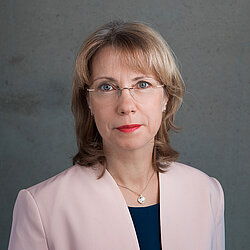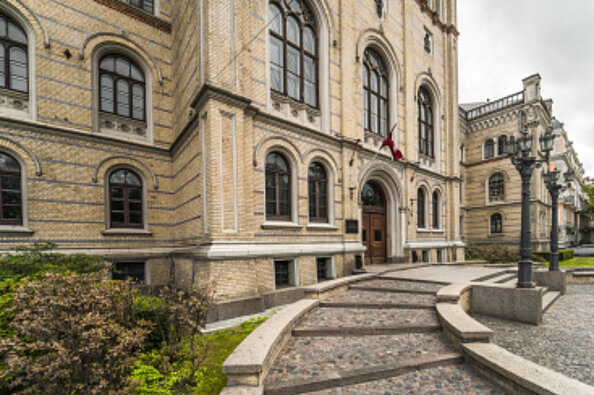The Study department creates and determines the study process, as well as implements, evaluates, oversees and improves the realization of studies. It contains the Study Quality Unit, the Regional Studies Unit and the Pedagogical Development Unit.
The Study Quality Unit develops the UL study development plan and, after its approval, organizes and oversees its implementation; drafts regulations governing all short-cycle, first-cycle, and second-cycle study processes and monitors compliance; it also monitors compliance with external regulations in the field of studies. The unit develops guidelines for managing student experience and skills and ensures their implementation; supervises and provides methodological support to faculties in the development of new study programmes as well as in the implementation and improvement of existing ones. In cooperation with the Science Department, it develops and organizes internal quality assurance processes in studies, organizes and coordinates the work of the study programme quality evaluation committees, and also manages external quality assessments. It supports and oversees the development and international accreditation of joint and double degree programmes; ensures the development of e-study content and the appropriate procedures; provides support in the implementation and improvement of study processes, evaluates the results and competitiveness of study programmes, and participates in resource assessment. The unit also develops regulations for the recognition of study courses and professional experience in cooperation with the Study Service. It drafts the continuing education (further education) development plan and, upon its approval, monitors its implementation; ensures the development of internal regulations for continuing education and oversees their execution; organizes and monitors the quality control of continuing education programmes; and supports the Vice-Rector for Studies in organizing the work of the Study Council.
The Regional Studies Unit oversees and coordinates the work of UL branches; develops cooperation with Latvian municipalities by identifying services suited to regional needs for various groups of population; coordinates collaboration between UL faculties and branches in the implementation, development, and accreditation of study processes in the branches. The unit handles financial settlements with UL faculties and other structural units for the implementation of studies and continuing education programs in the branches; promotes and implements project development according to regional needs; carries out the administrative and operational activities of the unit; ensures financial management of the unit and branches in accordance with UL procedures; maintains records of working hours and absences of branch personnel, as well as performance evaluation; ensures the preparation of procurement documents; ensures the rational and efficient use of the unit’s and branches’ infrastructure, along with responsibility for material assets; and prepares and manages the circulation of personnel management document drafts for the unit and branches.
The Pedagogical Development Unit, in cooperation with the Science Department, develops, monitors, and analyzes the workload tracking system for academic staff and staff otherwise involved in the study process; conducts monitoring of the knowledge and skills of staff involved in academic work, develops a system for improvement in collaboration with the Studies Innovation Unit, and creates a professional development system for academic staff – including the choice of activities, the establishment of a registry in cooperation with the Digital Transformation Department, and ensures its oversight.
Director


 CONFERENCE
CONFERENCE